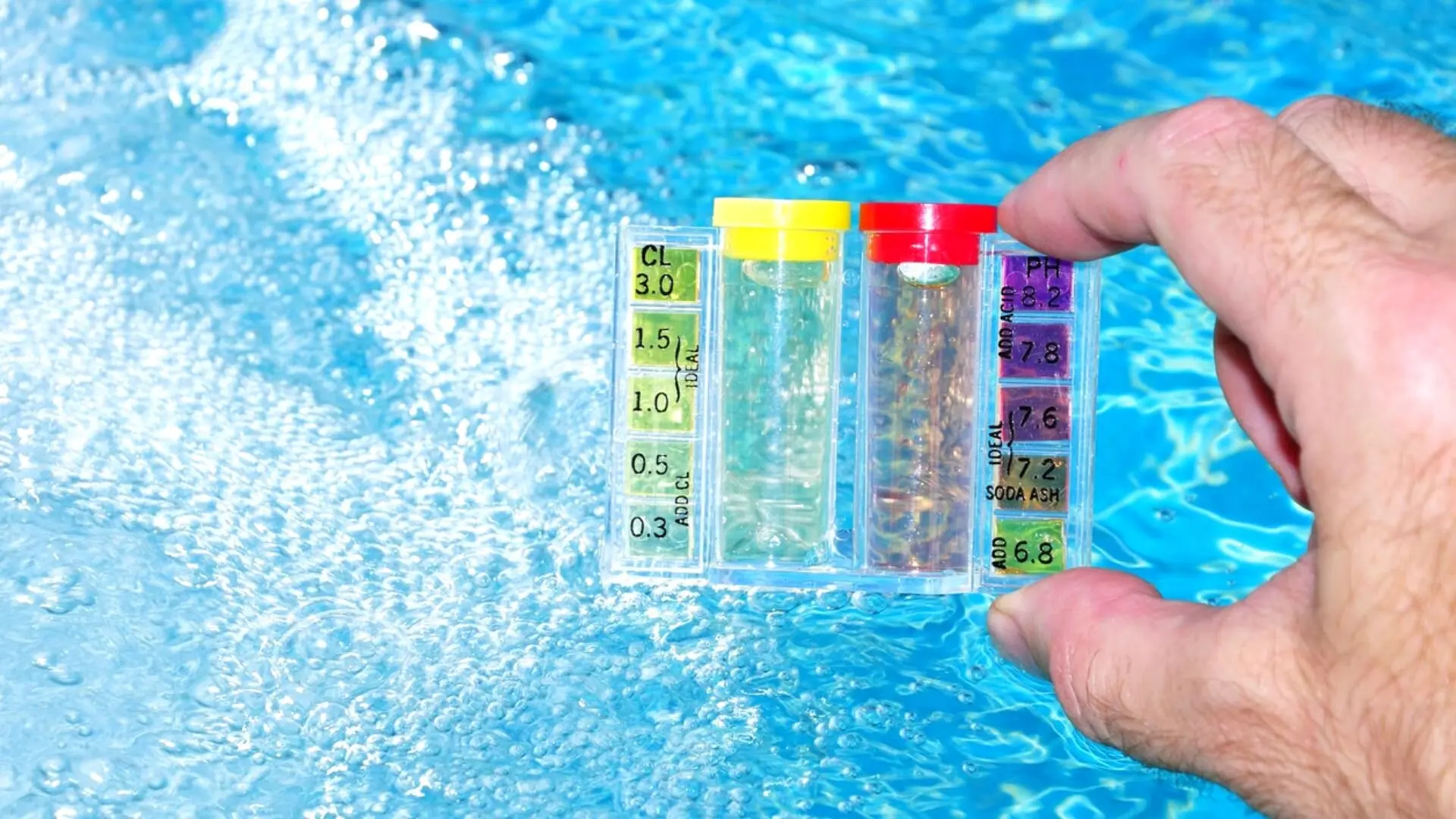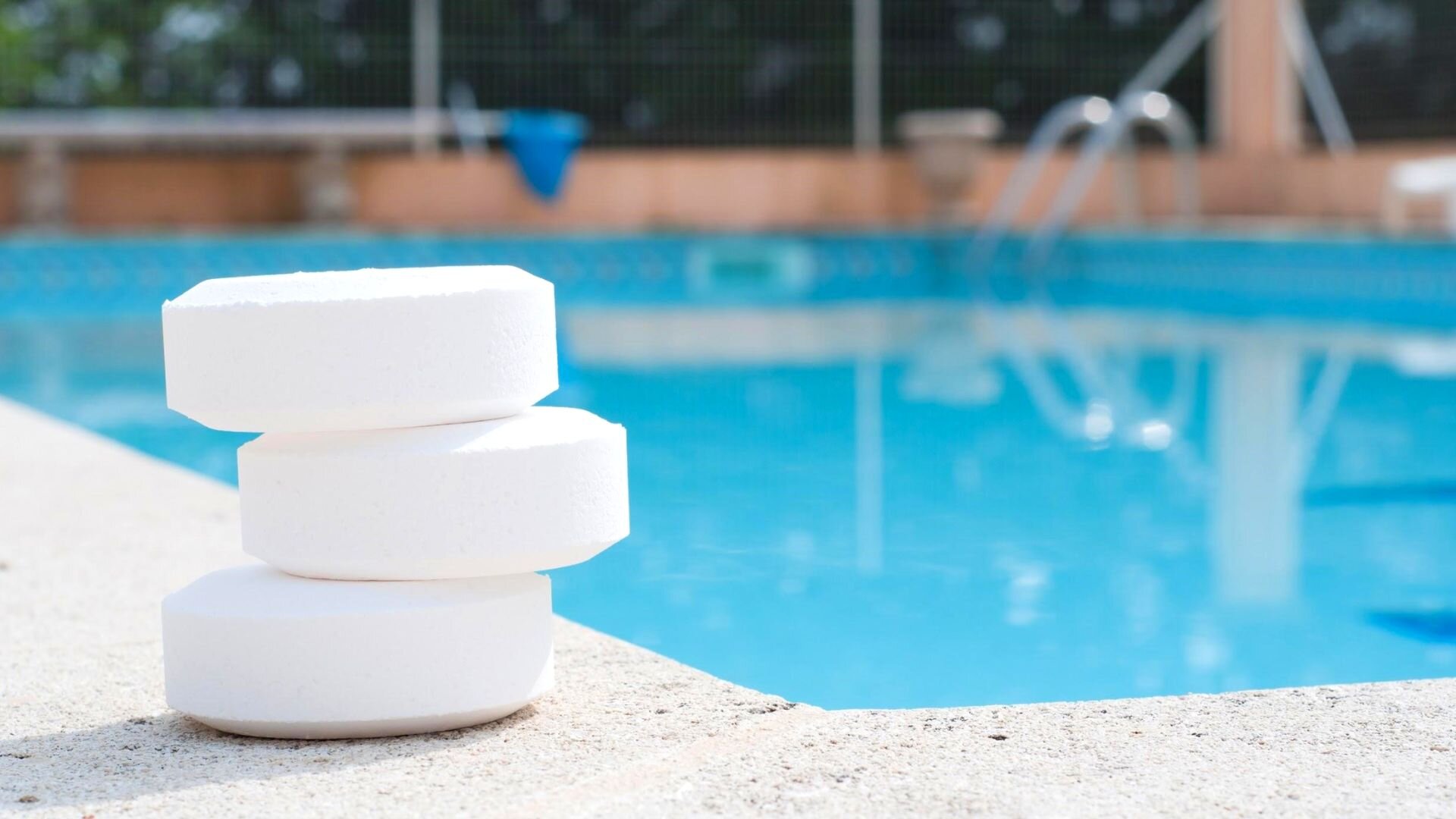We won’t be wrong to say that a healthy pool is every homeowner’s pride!
However, effective pool management is easier said than done. And cloudy water is one of the biggest problems faced by pool owners across the country.
Not only can it spoil the pool’s aesthetics, but it can also create unhealthy swimming conditions. So, what can you do to fix it? Read on to find out.
What Makes Your Pool Water Cloudy?
Cloudy pool water can be caused by many things, depending on the quality of water, frequency of use, environmental factors, etc. However, some of the most common problems that can affect your swimming pool include the following:
- Extreme pH change
- High calcium hardness levels (due to undissolved calcium)
- Algae formation
- Floating dirt and debris
- Blocked pool filter or nonfunctional filtration system
- Malfunctioning chlorinator causing low free chlorine level
As you may have already understood, treating your cloudy pool water to eliminate the murkiness will depend on the precise problem (or problems).
Now, some problems have visual symptoms, making them easier to detect. For instance, if the cloudiness appears more translucent (or you have clear, cloudy pool water), it generally indicates chloramine formation due to the reaction of chlorine and low-pH water. On the other hand, opaque, cloudy water usually results from undissolved calcium when the pH is too high.
The best way to determine the problem is to get the pool water tested by professionals who can help you figure out the right solution. But for now, we’ll walk you through a general procedure that should help you fix cloudy pool water.
How To Fix Cloudy Pool Water?

Step 1
Once you get the cloudy water tested by professionals to understand the issue, they generally suggest buying the right pool chemicals suitable for your swimming pool. These are readily available online or at your local pool store.
You can apply them on your own, but we strongly recommend following the manufacturer’s instructions and wearing adequate safety gear, such as eye protectors and gloves.
The most commonly recommended combination of pool chemicals includes chlorine, an algaecide, and a pool clarifier. This combination ensures enough free chlorine in the water, helps remove unwanted algae, and makes it easier to remove debris.
Your pool technician will tell you how much of each chemical to add to which part of the pool for the best results, so pour them accordingly. Always ensure the chemicals dissolve well in the water and don’t deposit on the pool’s sides or bottom. Otherwise, they may leave nasty stains on the surface.
Step 2
Take a pool cleaning brush and start scrubbing the sides of the pool. If it’s long enough, clean the bottom to remove all the particles and dead algae in the crevices. This and the water clarifier will make the debris float to the pool surface.
Step 3
Please turn on the pool filter system to clean up the debris, but ensure the pool pressure isn’t too high, as it may clog the pool filters. Then, you will have the added task of cleaning the cartridge filters.
Let the pool filtration run for as long as it takes the water to become completely clean so that you have a crystal-clear pool!
Step 4
We’d advise checking the fresh water to ensure it has the correct pH and total alkalinity. If not, you may need to add other chemicals to stabilise these parameters.
If the water doesn’t turn clear or becomes cloudy shortly after, there may be a problem with the pool filter system, pool pump, cartridge filter or other pool equipment. In that case, troubleshoot them or call professional pool maintenance services.
How To Prevent Cloudy Pool Water?

The following steps can help you maintain swimming pools and avoid making the pool cloudy:
1. Maintain The Right Pool of Chemistry
Wrong pH and low chlorine are among the leading causes of cloudy swimming pool water. While a pool conditioner or stabiliser can help raise the pH level, dry acid, muriatic acid, and sodium bisulphate can lower it as required.
As for increasing the chlorine content, get some granular pool shock to break up the combined chlorine particles to enhance free chlorine levels.
2. Reducing The Total Alkalinity (TA) Level
A high TA level can lead to a low pH level and calcium scaling, which can cause cloudy pool water. Ideally, your pool’s TA level should be between 80 and 120 PPM (depending on the type of pool and its volume). This will also enhance the efficacy of chlorine.
In most cases, the TA level can be successfully decreased by aeration after treating the water with muriatic acid.
3. Stabilising Calcium Hardness
A high calcium hardness (CH) level in the pool water will prevent the compound from dissolving properly. And the problem can worsen if you use high amounts of chemicals like calcium hypochlorite. The excess calcium will invariably cause a build-up, resulting in a clogged pool filter and poor filtration.
Hence, you should keep the CH level between 200 and 400 PPM. If it breaches the higher limit, drain the pool partially and refill it.
4. Maintaining The Equipment
It is crucial to keep your pool’s circulation system optimally functional at all times to keep the water clean. However, the pool filter, pump, and chlorinator can stop functioning due to the deposition of minerals or chemicals or simply because they have worn out.
We suggest cleaning the equipment whenever you clean or drain the pool. If it requires regular repairs, consider replacing it.
5. Cleaning The Cloudy Swimming Pool Manually
Cleaning the pool water regularly by removing debris like leaves, bird droppings, pollens, and twigs can help prevent cloudy water. Use a pool cleaner to catch as much solid debris as possible when you notice it floating on the water’s surface.
Or, invest in an automatic pool cleaner, which will be especially handy for cleaning the problematic spots around the edges and ladder.
You can also use a pool flocculant that helps the tiny particles of dirt and debris stick together, making them settle at the bottom. You can then drain the water and vacuum the pool to remove them.
No More Cloudy Pool Water!
If following the above steps doesn’t clear the water or you aren’t confident about dealing with chemicals and pool equipment, contact a professional immediately. Remember that allowing cloudy water to sit for too long can cause irreparable damage to the equipment or pool material.
If you need assistance cleaning your pool, please call our professionals at The Pool Co!
Good luck with cleaning your cloudy pool water. Until next time!



